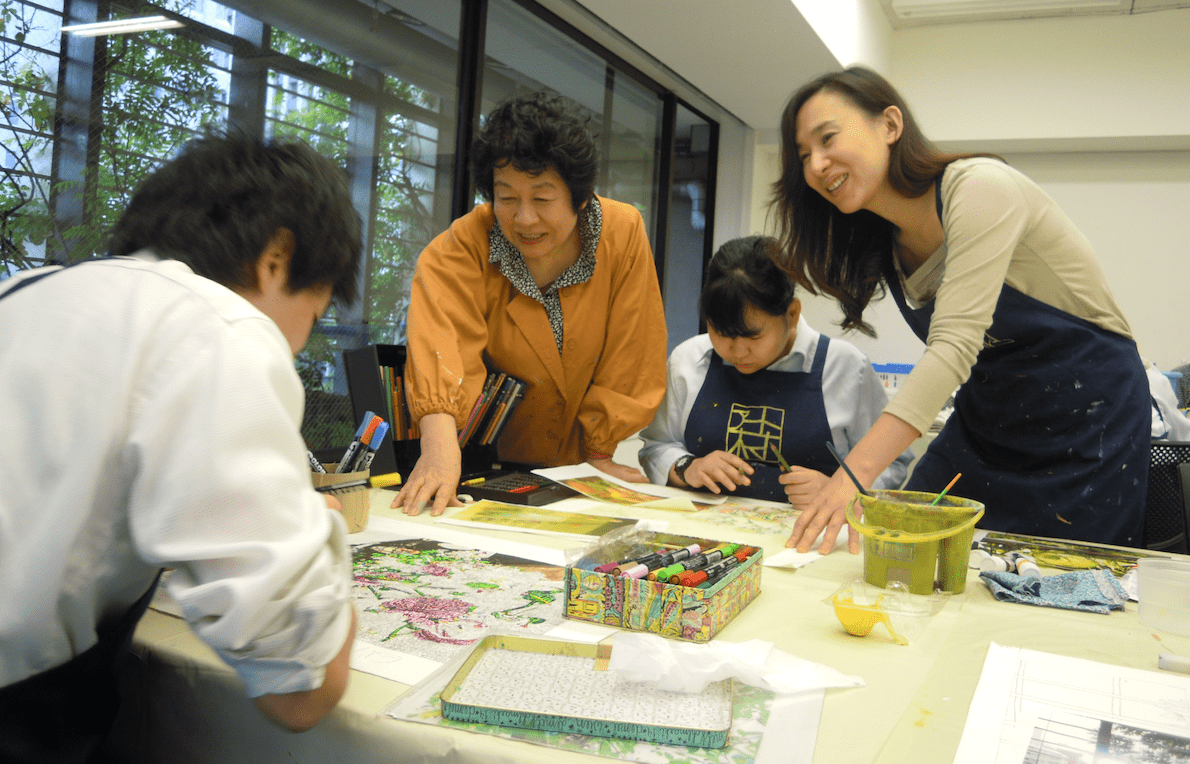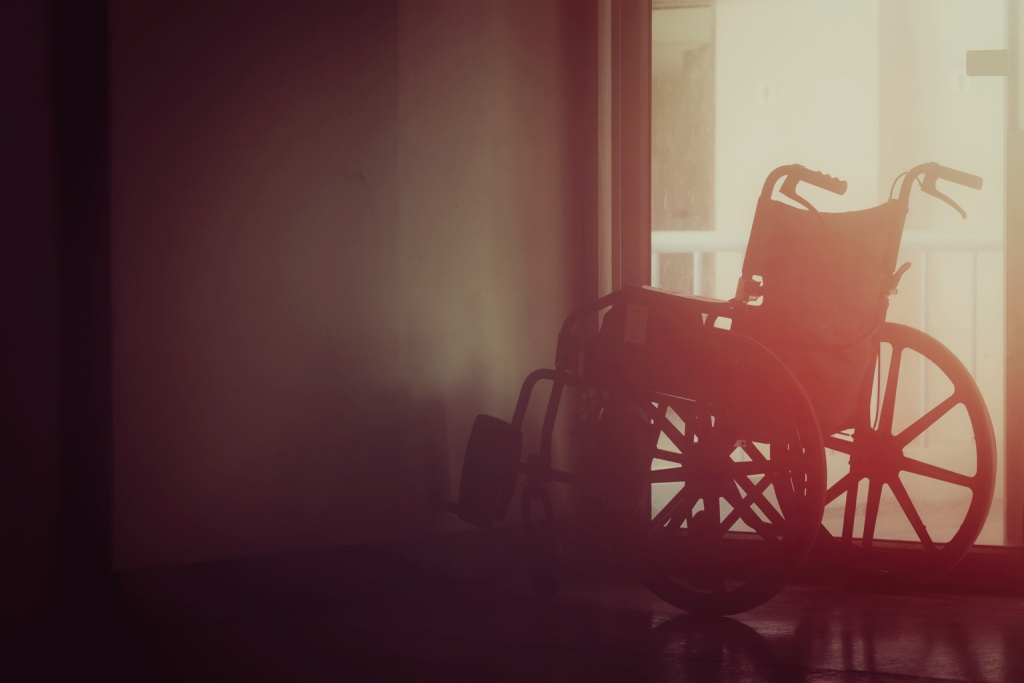Last year’s Sagamihara massacre was Japan’s deadliest mass killing since World War II, and it put the country’s bias against people with disabilities in the spotlight. Matthew Hernon looks at the reasons behind the discrimination, and what’s being done to help change attitudes.
Nameless and faceless: That’s how the victims of the Sagamihara massacre will forever remain in the eyes of the public. The abhorrent act, which ended the lives of 19 residents at the Tsukui Yamahiro En (Tsukui Lily Garden) care facility for people with intellectual disabilities was committed by 26-year-old ableist Satoshi Uematsu. A former employee at the center, he’d previously written about killing hundreds of disabled people “for the sake of Japan and world peace,” in a letter given to the speaker of the Diet’s lower house.
Inspired by Nazi eugenics, the multiple-murderer has been given the media platform he seems to crave, yet very little information – only that there were 10 women and nine men, aged between 19 and 80 – has been conveyed about those he killed. The Kanagawa police decided against giving more details to protect the families who may be worried about discrimination. The decision has intensified the debate in Japan concerning attitudes towards physically and cognitively impaired persons.
“Not showing their names and faces is basically like denying them their humanity,” says author Suzanne Kamata, whose daughter Lilia has cerebral palsy and is profoundly deaf. “Following terrorist attacks in Nice and Orlando I remember reading a lot about what the victims were like and what they enjoyed doing. Obviously, we couldn’t do that after the Sagamihara incident, which I felt was wrong. Also, it didn’t receive the same kind of attention as other tragedies. There were no hashtags on Twitter or things like that. As a news story, it seemed to die down quite quickly.”
Kamata’s views are shared by many, including New York-based filmmaker Kazuhiro Soda, who in 2007 directed the critically acclaimed documentary Seishin (Mental) about an outpatient mental health clinic in Okayama. “Of course, the will of victims’ family members should be respected,” Soda tells us. “However, from what I understand in the case of Sagamihara it was the police that decided not to publicize the names of those killed because of their disabilities. I find that disturbing and discriminative. I imagine some of the families wanted to talk openly about the deceased. Without their stories the victims remain faceless, making it harder for the public to feel sympathy towards them.
“There are so many people suffering from mental disorders, but because of the shame attached they choose not to discuss their problems. They are illnesses that could affect anyone. I realized this while working in Tokyo for two months when I was screamed at by producers and regularly had to stay at the office overnight. The working conditions here are stressful enough to make the most laid-back person snap, and that was one of the reasons I wanted to make Seishin. I was strict about not blurring out the patients’ faces as is the case with most documentaries. In order to have an open discussion, they should be visible.”
Slightly encouraged by the progress that’s being made, Soda believes mental illness is becoming less of a taboo in Japan. This is partly down to several government initiatives including various educational programs on the topic. Furthermore, in April 2016 a new law was enacted aimed at eliminating discrimination against individuals with either physical or cognitive disabilities. Whilst a little vague regarding what constitutes discrimination, the legislation, which will be reviewed in three years, was unquestionably a step in the right direction. So was the amendment of the Act on Employment Promotion of Persons with Disabilities back in 2013, which raised the legal employment quota for people with disabilities from 1.8% to 2.0%. While many companies still fall below that number, the employment rate of individuals with disabilities has continued to grow year by year over the past decade.
One organization certainly playing its part is Pasona Heartful. A special exemption company of the Pasona Group, it’s engaged not only in the outsourcing of office operations for people with disabilities, but also the development of agriculture and other new areas of employment.
“Our approach is to take each person on their own merit,” says Pasona Heartful director Tadamichi Shiroiwa. “We’re an HR firm so our focus is always on a candidate’s strengths and skills, not their handicap. For too long in Japan, people with disabilities have been segregated. The situation has improved over the past 20 years, but it feels like a slow process. I still think we’re behind other countries in terms of equal employment opportunities and barrier-free access. The government needs to enforce more stringent architectural policies ensuring that buildings have better accessibility for everyone.”

Artists with disabilities create artwork as part of Pasona Heartful’s Art Mura initiative
Suzanne Kamata concurs. She feels attitudes towards people with disabilities in Japan have shifted in recent times; however, regarding infrastructure she believes there’s still a long way to go. The American-born writer explores topics like accessibility and human relations in her new book A Girls’ Guide to the Islands in which she travels around the Seto Inland Sea with her daughter. It’s a trip she probably wouldn’t have envisioned making 10 to 15 years ago.
“When Lilia was young, my mother-in-law told me not to let her play outside on her own because she was worried what the neighbors would think,” says Kamata. “I heard there were three children nearby with disabilities, but I never really saw any. The attitude back then seemed to be ‘let’s hide them away.’ Thankfully that’s changed and you’re now seeing more kids in wheelchairs and so on out and about. Unfortunately, there are still many shops and restaurants, including new ones, that are inaccessible. This contrasts sharply with America where even old mom and pop stores have ramps.”
Josh Grisdale, who has cerebral palsy and is the founder of the Accessible Japan website (www.accessible-japan.com), points out renovations to public buildings don’t just benefit those who are physically challenged, “but everyone.” The 36 year old, who moved to Tokyo 10 years ago from Canada and recently became a Japanese citizen, is pleased with the progress that’s being made and is confident that significant steps are being taken towards making Japan a barrier-free country.
“I feel freer here than I did in Canada where I lived in a rural area and always had to rely on someone for a ride whenever I wanted to go anywhere,” he tells Weekender. “In Tokyo, the vast majority of public transportation is now wheelchair accessible so I can be more spontaneous. The toilets are also great and very easy to use. There’s even an app to find them: ‘Check a Toilet.’
“Sometimes people follow the rules too closely here, but in general I feel it’s a great place for people with disabilities to visit. I remember the first time I came. There were all kinds of questions swirling around my head. Was the hotel going to be OK? Would I be able to use the train? The feeling of uncertainty was accentuated by the lack of information. After moving here permanently and learning the language, I realized there was lots of it available – it just wasn’t in English! That’s why I decided to create Accessible Japan.”
As well as providing tips, the website also features various articles including some related to the Sagamihara massacre, an incident which Grisdale found difficult to comprehend. “I’ve faced various forms of discrimination during my life, but never imagined someone hating people because of their disabilities,” he says.
Yet, Satoshi Uematsu is not completely alone in his perverse way of thinking. Ableism does exist and is exacerbated by public figures such as Australian philosopher Peter Singer, who advocates killing disabled babies via infanticide. In Japan, LDP politician Seiko Noda, whose child was born severely handicapped, has been subjected to online abuse including one person who told her that she should leave her son to die as he “uses up so much government money for medical care.”
“Rather than spouting these opinions, I wish those individuals could observe people like my daughter,” says Kamata. “Then maybe they’d realize they’re more than just their disability. Awareness is growing and attitudes are changing, however, I fear that discrimination will always be there.”
More About Pasona Heartful
Four ways this organization is helping to make a difference:
Office operations: Outsourcing of office duties for people with disabilities include general affairs, mailing and printing.
Art Mura/Art Mura Koubou: Artists with disabilities create paintings and craftwork that can be purchased.
Yume Farm: With the support of able-bodied specialists, members cultivate vegetable, rice and fruit crops.
Pan Koubou: Additive-free bread and pastries are prepared under the direction of professional bakers.
For further info, visit www.pasonagroup.co.jp
This article appears on the February 2017 issue of Tokyo Weekender magazine.









